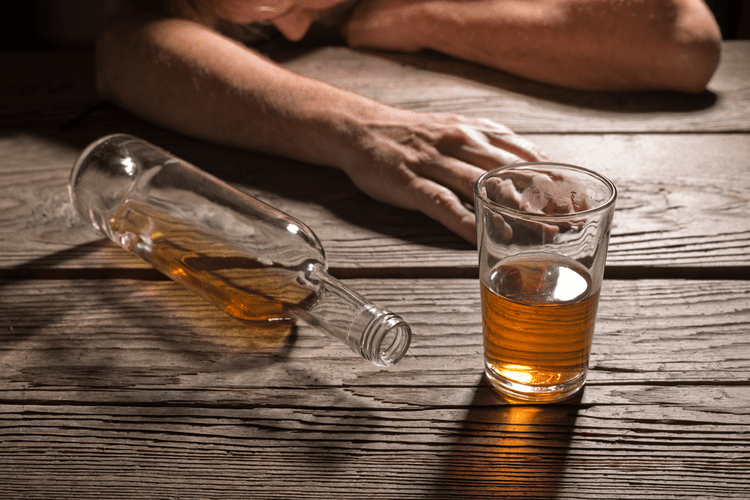Content
If certain people, places, or activities trigger a craving for alcohol, try to avoid them. This may mean making major changes to your social life, such as finding new things to do with your old drinking buddies—or even giving up those friends and finding new ones. Treatment doesn’t have to be limited to doctors and psychologists. Many clergy members, social workers, and counselors also offer addiction treatment services. There’s no magic bullet or single treatment that works for everyone.
- In addition to helping recovering alcoholics, there are SOS groups that support those overcoming drug abuse and compulsive eating disorders.
- If you know nothing about what your loved one is going through, it’s very difficult to understand the magnitude of the situation from a third-party perspective.
- Without limiting the foregoing, Alkermes does not warrant or represent that the Provider Locator or any part thereof is accurate or complete.
- Talk to your healthcare provider about naloxone, a medicine that is available to patients for the emergency treatment of an opioid overdose.
It’s also called alcohol dependence, alcohol addiction or alcohol abuse. When a person is struggling with alcohol addiction, they may hide how much they drink, lie to themselves or others about their consumption, or deny they have a problem. This can make it difficult for them to get alcohol addiction help or for loved ones to talk with them about seeking treatment. Cognitive Behavioral Therapy (CBT) is a proven method for alleviating the burdens of alcoholism.
Resources For
The organization has a wide range of studies containing information about how excessive alcohol consumption affects and rewires the brain. Designed with the family members and friends of alcoholics in mind, Al-Anon and Alateen are great resources for learning how to cope with someone’s drinking behavior. Individuals can attend meetings in person, online or via the phone to discuss the situations they are currently facing. Members advise one another on how to support and encourage a loved one to seek the treatment they need.
Sometimes an intervention, no matter how resistant your loved one is in the moment, is just what’s needed to help an alcoholic begin recovery. Most of us weren’t exactly thrilled to get sober, but once we made a start the benefits far outweighed our defiance. In just 5 Tips to Consider When Choosing a Sober Living House about every case of active alcoholism, we see, there’s at least one family member or friend who continues to provide financial support to the alcoholic family member. Unfortunately, that person can undo all the other efforts everyone else is trying to make.
Coping and support
In the early stage, the alcoholic does not consider himself or herself sick because his or her tolerance is increasing. In the middle stage, the alcoholic is unknowingly physically dependent on alcohol. He or she simply finds that continuing to use alcohol will prevent the problems of withdrawal. By the time an alcoholic is in the late stage, he or she is often irrational, deluded, and unable to understand what has happened.
How do you cope with alcoholism?
- Remind yourself of your reasons for making a change.
- Talk it through with someone you trust.
- Distract yourself with a healthy, alternative activity.
- Challenge the thought that drives the urge.
- Ride it out without giving in.
- Leave tempting situations quickly and gracefully.
John C. Umhau, MD, MPH, CPE is board-certified in addiction medicine and preventative medicine. For over 20 years Dr. Umhau was a senior clinical investigator at the National Institute on Alcohol Abuse and Alcoholism of the National Institutes of Health (NIH). The first step toward recovery is to acknowledge that there is an alcohol dependency problem.
Talk therapy is key
The person with the drinking problem needs to take responsibility for their actions. Don’t lie or cover things up to protect someone from the consequences of their drinking. Consider staging a family meeting or an intervention, but don’t put yourself in a dangerous situation. Offer your support along each step of the recovery journey. Professionals in the alcohol treatment field offer advice on what to consider when choosing a treatment program.
Depression and anxiety often go hand in hand with heavy drinking. Studies show that people who are alcohol dependent are two to three times as likely to suffer from major depression or anxiety over their lifetime. When addressing drinking problems, it’s important to also seek treatment for any accompanying medical and mental health issues.
Finding Alcohol Rehab Near Me
Contact us to discuss intervention help, treatment options and available resources to help your loved one on the road to recovery. The Centers for Disease Control and Prevention reports that excessive alcohol use kills roughly 95,000 Americans every year, often due to binge drinking or liver disease. Current methods to prevent excessive alcohol use and dependency include psychological counseling, supervised detoxification programs, and certain drug regimens that dampen cravings. There are obvious advantages to getting the alcoholic into treatment earlier rather than later. One advantage is that, the earlier treatment is begun, the probability of having less expensive treatment, such as outpatient care, is increased. There is also a greater likelihood of success in treatment with an individual who has not yet lost everything and still has a supportive environment to return to, including an intact family, good health, and a job.
